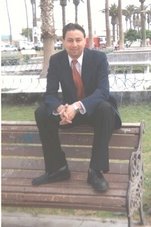Lesson 29: Unit 57 DIFFERENT CULTURES
David: Today we look at different cultures.
Kevin: And what happens when people move from one
country to another.
Natalie: And we meet this woman. Joan Tull, who lives
in England, but will soon be moving to another country. You’d move to another
country, haven’t you Kevin?
Kevin: That’s right. I came to Britain a year ago a
lot of things are different here. British food is different, but I’m used to it
now and here in Britain they drive on the left. I’m getting used to that, but
the weather the sun doesn’t shine much in Britain. I still can’t get used to
the weather.
I’m used to it now.
|
I’m getting used to driving.
|
I can’t get used to that.
|
THE TWO MOLES
Mole 1: Winter’s coming.
Mole 2: Yes.
Mole 1: It’ll be cold.
Mole 2: I know. I hate being
cold. I’ll never get used to winter.
Mole 1: I’ve got an idea! Why
don’t we go to Australia?
Mole 2: Australia? Where’s
Australia?
Mole 1: Down there!
Mole 2: How far is it?
Mole 1: It’s not far. Come on!
Mole 2: Ok.
Mole 1: Just think. This time
tomorrow, we’ll be sitting in the sun, we’ll be lying on the beach, we’ll be…
Australia!
Mole 2: Already? It’s still cold.
And the sun isn’t shining.
Mole 1: Yes. Australia’s just
like home.
This time tomorrow, we’ll be sitting…
|
This time tomorrow, we will be sitting…
|
Natalie: What will you be doing
this time tomorrow?
1.
I’ll be at home watching television.
2.
I will hopefully be having lunch.
3.
At this time tomorrow, I will be sitting down in my
office.
4.
I should be having a meeting with colleagues.
5.
I’ll be on a train to Leeds.
6.
I’ll be sleeping.
Natalie: And what will you be
doing in ten years’ time?
1.
In ten years’ time I hope I’ll be living somewhere
else in Europe.
2.
I will be working somewhere.
3.
In ten years’ time I may be thinking about retiring.
4.
Hopefully in ten years I will be picking up a couple
of kids from kindergarten or something.
5.
I really don’t know what I’ll be doing in ten years’
time at all.
6.
If my plans go correctly I shall have retired from
being a headmistress and I should be teaching my subject again to students who
want to learn it.
Kevin: This time tomorrow I’ll be
working here, but this time next year I’ll be back in the United States in
California.
I’ll be living in California.
|
I’ll be driving on the right.
|
I’ll be eating American food.
|
Kevin: But I’ll miss some things
about England.
Joan Tull VSO volunteer: I’ll be
going to Zimbabwe to quite a large village school. And I’ll be teaching English
to 16 years olds up to a level and I think I’ll be a form teacher to twelve and
thirteen years olds. I’ll be staying for two years minimum and there’s a
possibility of having that extended to three or four years.
David: What will Joan have to get
used to?
Joan: I’ll have to get used to a
whole series – a whole raft – of different working conditions. I’m used to
working in quite a high-tech sort of industry that’s got lots of machinery has
no machinery apart from a typewriter, has no electricity at all, no
photocopiers… all the things that you take for granted, they just won’t be
there any more. So I’m going to have to get used to that sort of thing really.
I’ll be staying near the school
which is called “curandera” in quite a small village it’s amid sich of farmers
generally it’s quite near to a sort of small town, but it’s quite rural itself
and I’ll be staying in a teacher’s house living with two or three other
Zimbabwean teachers.
I’ll have to get used to not having the variety of different
foods that you have here; like 20 different varieties of breakfast cereal, and
all the food that you could possibly want and can think of you can have here;
and the range of food there is much smaller. I’ll have to get used to getting
water from a bore hole; not having electricity, which means gas lamps in the
evening, which means the difficulty of preparing for the next day’s lessons in
poor light; different ways of getting your clothes washed; how you make your
own entertainment in the evenings, because I’m used to coming home and watching
television and, you know, phoning your friends and listening to music, and that
sort of thing. And there’ll be quite big differences like that, that I’ll have
to get used to.
I have eight I must have had more
than twelve actually I have eight different sorts of courses of injections.
I’ll miss shopping for clothes in my favorite clothes stores and I’ll miss
seeing my friends after work and going to the cinema and going to a club, I’m
going to a parties an endless list of things that I can think of that I do that
I do without thinking about it really, but I’m going to miss.
She’ll be teaching English.
|
She’ll have to get used to…
|
She’ll miss seeing her friends.
|
She’ll be living in a teachers’ house.
|
She’ll miss shopping for clothes.
|
I think that there will be quite
a lot of cultural differences, and those are going to be the most difficult
things to get used to, because physical things I think you can adapt to really
quickly. I think a different way of looking at the role of women in society is
going to be quite difficult, because I’m used to saying exactly what I think
about everything and I’m just going to have to learn to keep quiet about
things. But the problem with that is that I can see why you have to do that
but, then, If quite a big part of yourself is to not like injustices or
whatever it is and to say what you think, then how much is it that you are
changing yourself as a person and as a personality? And maybe I’ll get there
and I’ll find that, you know, it simply is not a problem at all.
David: What’s the training like for
VSO?
What we’ve got here is a sort of
mishmash of the reason why you’re doing becoming a volunteer, Yeah? And what I
wanted to do was kind of look at the actual the pictures you had in your head,
because they overlap with your expectations with what you’re expected to get
out of it.
In terms of formal training and
before I go I’ll be doing two or three weekend courses one will be about
development issues asking you questions about why it is that you want to do
there so and there’s going to be one that it’s going to be really concrete
about how you teach English as a foreign language or English in Zimbabwe.
David: Why does she want to do
it?
I always wanted to do something
that was about helping people, and feeling that what you did was important to
people, and that it mattered. So that’s the basic reason why I’ll be going to
do VSO, I think.
I’m quite looking forward to
going to a completely different environment, that’s different on all sorts of
levels: in terms of the culture, in terms of the standard of living. I’ll be
quite interested to just find out how a whole different set of people live. I’m
looking forward to not being in England, because I’m tired of it. I’m looking
forward to hot, sunny weather. I’ll be quite interested to see how I fit into
the new job; just a whole, new life really… suddenly will open up.
It’s a bit dangerous because I
don’t know how I’m going to cope with it but that’s all part of it. It’s all
part of kind of, you know, saying my god wasn’t I. Wasn’t I pray for once in my
life and I’ll get to 30 and I look back and I sell be able to say I think. God!
You know, for once in my life I did something that was just a bit unusual and a
bit different.
WORD BANK
|
Get used to
|
Acostumbrarse
|
Adapt to
|
Adaptarse
|
|
Running around
|
Correr de aquí para allá
|
Borehole
|
Perforación/agujero
|
|
Miss
|
Echar de menos algo
|
Cereal
|
Cereal
|
|
Pick up
|
Ir a buscar
|
Cultural
|
Cultural
|
|
Retire
|
Jubilarse
|
High-tech
|
Alta tecnología
|
|
Subject
|
Asignatura
|
Injustice
|
Injusticia
|
|
Hopefully
|
Si todo va bien
|
In terms of
|
En cuanto a/ en términos de
|
|
Range of
|
Variedad
|
Matter
|
Importar
|
|
Raft
|
Cantidad/montón
|
Role
|
Papel/función
|
|
Series
|
Series/serie de cosas
|
Set
|
Grupo
|
|
Standard of living
|
Nivel de vida
|
Take for granted
|
Dar por sentado/dar por supuesto
|
|
Variety
|
Variedad/diversidad
|
|
|


No hay comentarios:
Publicar un comentario